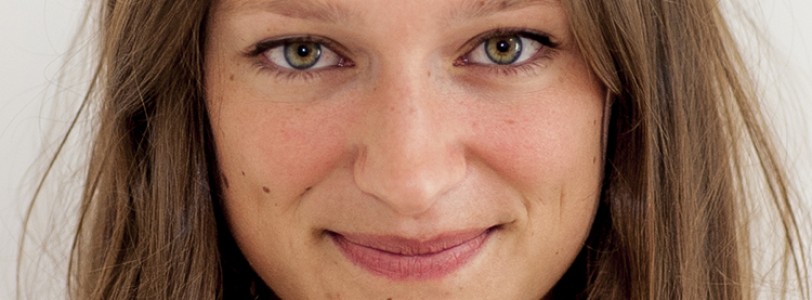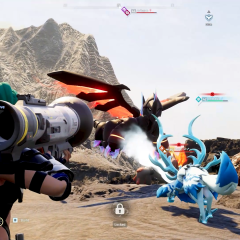Could you first introduce yourself to the reader?
My name is Bettina; I am French and have been living in London for the past two-and-a-half years. I currently work as a Senior Data Scientist for the BBC in the Datalab team. BBC Datalab aims at using Machine Learning algorithms to provide a better experience to our audiences mainly through personalisation.
What does your job involve? Give us the typical outline of a day?
I am in charge of developing recommender systems. Based on what our audiences consumed in the past, we are building personalised feeds of content, tailored just for them! My job is mainly coding. I need to collect the (very big) data sets, clean it, analyse it and use algorithms to extract some insights.
What’s great about your job?
It’s very rewarding to work for an organisation such as the BBC! Audiences are at the heart of everything we do. It’s amazing to have a direct impact on them. I also love the fact that we are a cross-functional team. I am not only working with data scientists and engineers, we also work very closely with editorial people to make sure we are compliant with our values and with legal requirements. We also work closely with the product teams, as they really know their audiences and their content. I am constantly learning, and sharing my knowledge.
What are the bits you don’t like or find challenging?
Working with data is challenging. Data is very sensitive, and powerful. We have to take a lot into consideration to make sure we stay compliant with our values and that we have a positive impact for our audiences. It’s challenging but very exciting!
What are the highlights of your career to date?
It’s really exciting when you can see your work being used, and doubly-so when it’s for a good cause. I’ve been involved in a few charity projects for the French Red Cross and le Samu Social de Paris, a French humanitarian emergency service. I spent a few days on those side projects, bringing my tech expertise. The insights from those were very valuable for the charities. It’s great to be able to use my skills for social good.
What is something you’re currently working on that has you excited?
I am currently building a recommender system for a BBC product I really like! We are investigating an approach called Factorization Machines; an hybrid algorithm of the two usual techniques for recommender systems: Collaborative Filtering and Content Based algorithms. Collaborative Filtering corresponds to “Customers who viewed this item, also viewed…”. It’s based on the user-item interactions and the predictions for a given user are made by analysing the preferences of other, similar users. Content Based approaches relies on items features and predictions are made by finding similar content to the user preferences. It corresponds to “You may also be interested in…”. At the BBC we collect all the user interactions (reads/plays, comments etc.) and we also have some metadata (features) for our content like the topics, brands, etc.
There are thousands of new items produced every day at the BBC. Personalisation using such algorithm is key to help the audiences surface the content they engage with.
What was your career path into this job? Have you also worked outside the industry?
I have been working as a Data Scientist for the past four years now. As there is data everywhere, as a Data Scientist you can work in so many different sectors. I’ve actually worked in a few different companies, and countries! First within a consultancy company in Paris, then at SoundCloud in Berlin, and I finally moved to London for the BBC. I have a background in statistics and economics, and I didn’t really enjoy coding at first… and now it’s my day-to-day job! Machine Learning is very powerful, it’s fascinating.
Can you describe your biggest challenge so far in your career? How did you overcome it?
Each time I work on a project, the biggest challenge is the data quality. Sometimes you just don’t have enough data to get significant results. Sometimes you don’t track the correct signals. Sometimes there is a lot of noise or mistakes in it, or it’s not consistent… A huge part of my job consists of data cleaning and data enrichment.
Have you noticed any changes in the industry? If so, what?
It’s a fast paced industry. There are new technologies and new findings all the time. This is true in regards to both the terms of algorithms and techniques used, but also computation (machines), data collection, etc. There is now a real awareness of the power of AI, and it's good but also (very) bad impacts on society. Regulations are luckily put in place, and companies need to adapt to those.
Is the current impact of technology on wider culture a net positive or negative, and would you change anything?
As I said earlier, we can do great things with technology and AI. For example there are great improvements in the medical industry. But it can also go against vital principals like democracy: Cambridge Analytica for example. That’s why we need some regulations, and moral discussions about this. This is a new area. We need to set a framework.
I really recommend reading “Hello world”, from Hannah Fry. It’s a great and easy to read book about AI, how it’s shaping our world and the dilemmas it brings with it.
You’ve been granted the ability to send a message to 16-year-old you. What do you say?
Don’t be afraid to step out of your comfort zone. Experience and enjoy life.
Do you have any advice for young people interested in doing your kind of job?
Maths and coding can be a bit scary at first — especially when you are a girl I reckon — but don’t give up! There are amazing things to build with technology!









0 Comments